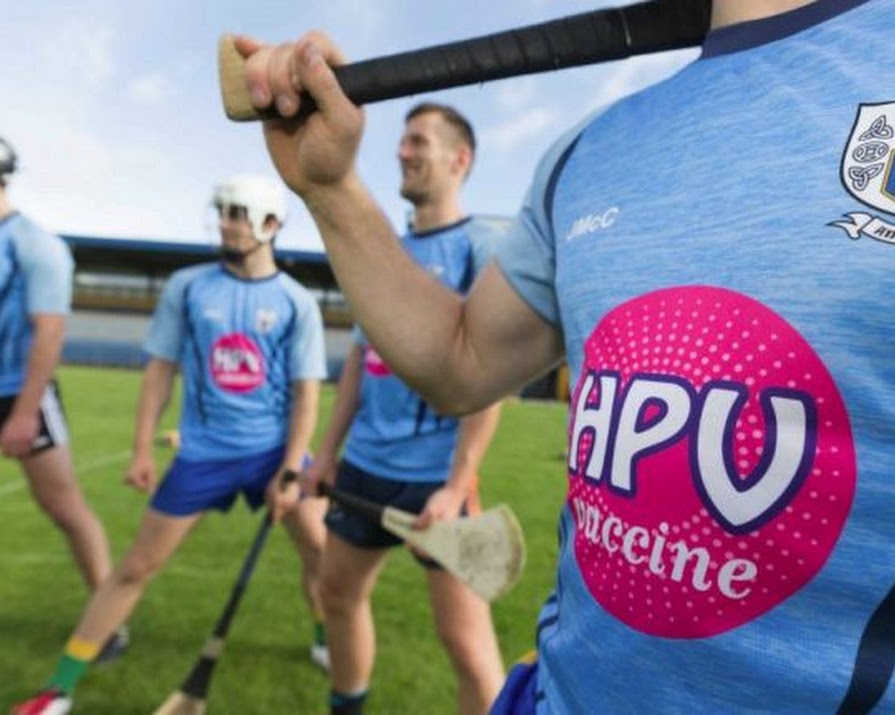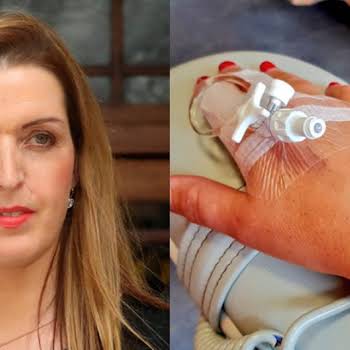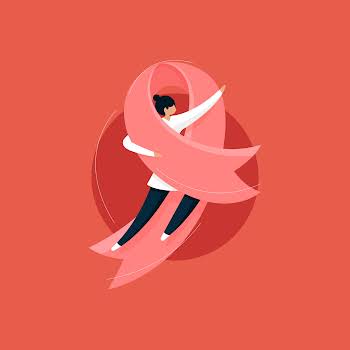
Ask the GP: ‘How will I tell my partner I have HPV and will I give it to him?’
By IMAGE
05th Oct 2019
05th Oct 2019
Our resident GP Dr Doireann O’Leary talks frankly about HPV, the vaccine and why women carry the weight of HPV on their shoulders
Ever since summer of 2018, smear testing, cervical cancer, HPV and the HPV vaccine have been at the forefront of Irish women’s minds. Brave women like Vicky Phelan and Laura Brennan showed courage in sharing their stories, which in turn made us all more vigilant when it comes to screening and cervical cancer.
There have been so many disappointing aspects surrounding how Cervical Check has processed smears and communicated with the women of Ireland.
Looking forward, there are some positives that can be taken from all that has happened.
“I was inundated with women who had never been for a smear, or who hadn’t attended in years.”
I believe we, Irish women, are now a lot safer and more informed. There are two main reasons. The first is that we are now a lot more mindful about making sure our smears are up-to-date. The second is that we are seeing increased uptake in the HPV vaccine.
Related: HPV – the facts
When the controversy first broke last year, I wasn’t inundated with women who wanted additional “reassurance” smears. I was inundated with women who had never been for a smear, or who hadn’t attended in years.
The influx of women who were now attending for smears – and indeed those who opted for reassurance smears – did unfortunately result in an unprecedented backlog and wait times for results but we are now thankfully back to the standard seven-week wait time.
Alert and proactive
Women are more alert and proactive about screening now. The screening programme is designed to detected precancerous cells that are easily treated and solved, usually at colposcopy. The test involves visualising the cervix and taking a sample of cells from the “transformation zone”, a microscopic area where cells are most likely to develop into cervical cancer.
It’s a lot easier, safer and more pleasant to attend for a smear test and treat any precancerous lesions than to face in to cervical cancer treatment.
“Symptoms concerning for cervical cancer are bleeding after intercourse, bleeding between periods, and persistent, unexplained vaginal discharge.”
Screening starts at age 25 but, in some cases, your doctor may recommend doing one before this. Any woman who is thought to be at risk of cervical cancer should be offered a smear test. To get a smear test privately, outside of the Cervical Check screening programme costs approximately €100 for the smear and an additional €50 for the HPV test. Money well spent. The financial fallout of a cancer diagnosis would be a lot more.
Related: Ovarian cancer – the facts
In addition to at risk women being offered a smear test before age 25, women with concerning symptoms may also be advised to have an “off programme” smear. Symptoms concerning for cervical cancer are bleeding after intercourse, bleeding between periods and persistent, unexplained vaginal discharge.
Whilst screening can’t protect us fully from cancer, and can sometimes unfortunately misses pre-cancers and cancers (due to the nature of a screening test as opposed to a diagnostic test), the increased awareness will undoubtedly save lives.
I firmly believe we are going to see our cervical cancer numbers drop in Ireland due to increased screening awareness now.
HPV vaccine
The other main reason we are going to see numbers drop is due to the incredible tour-de-force that was Laura Brennan. Her advocacy work for the HPV vaccine is one of the most powerful public health initiatives I’ve ever seen. She has indeed helped to protect our future. Laura’s work has seen uptake of the vaccine soar in Ireland. Her documentary aired on RTE again recently and I’ve been inundated with messages from young girls and women who want the vaccine.
Whether it’s a mother who now wants to enrol her daughter in the catch up program, or a 25 year old who wants to organise the vaccine for herself, Laura’s story is resonating with Irish women. Thank you, Laura.
So what is HPV and why is it so important to get the vaccine? Human Papilloma Virus is a large family of viruses. There are over 100 strains, some less sinister than others. HPV 2 and 10 often cause the common wart on our hand or toe. No problem? easily solved.
“HPV is spread by skin-to-skin contact, meaning condoms don’t protect against it. “
However, there are more concerning strains. HPV 6 and 11 cause genital warts. HPV 16 and 18 are “oncogenic”, meaning they can cause cancer. They don’t only cause cervical cancer in women; they can result in penile cancer, anal cancer and head and neck cancers in men also.
It’s a sexually transmitted virus that about 90% of sexually active people will get at some point in their life. It is spread by skin-to-skin contact, meaning condoms don’t protect against it. This is why it’s so prevalent. Ordinarily, our immune system clears the virus before it’s had a chance to cause trouble.
However, unfortunately sometimes we don’t clear it, it lingers and causes cell changes that eventually lead to cancer.
In the case of cervical cancer, HPV drives cell mutations at the transformation zone that I mentioned earlier. If left undetected these cell changes result in pre-cancer cells and then ultimately cervical cancer itself is the result. The idea of screening is to get in early, detect these pre-cancer cells and get treat them before cancer has a chance to start.
HPV is common. Women and men get it at the same rates. Women seem to carry the burden of HPV on their shoulders.
“I have HPV. Will I give it to my partner? How will I tell him?” HPV doesn’t discriminate. It isn’t a virus for women. The reason it seems to have taken on the identity of a women’s health issue is because we test for it on smears in some cases, and because of our increased awareness of the association between HPV and cervical cancer.
There’s no routine test for men. If a woman has it, her partner probably has it. Again, as I said, this isn’t a virus for women and we must not carry the weight of this infection on our shoulders if we test positive.
At time of writing, Cervical Check are only checking abnormal smears for HPV but in time, every sample, whether normal or not will be checked for HPV. Another positive to take from all of this.
Penile cancer
The HPV vaccine can help prevent against HPV related cancers (cervical, head and neck, penile and anal cancer). It’s called Gardasil 9. It covers against 9 of the most harmful strains of HPV, including 6 + 11 that cause genital warts and 16 +18 that cause cancer. The reason the State provides the vaccine for free to young teenagers is because it’s most effective at this age, before “sexual debut”.
From September 2019, HPV vaccination has been rolled out for boys as well as girls. It makes perfect sense; protect boys from penile, anal, head and neck cancers and stop them passing it to girls at time of sexual contact. Any sexual contact can result in transmission of the virus, not just penetrative intercourse.
If you’re a parent for a school going girl and opted not to give her to vaccine in first year, there is a free catch up programme for older school girls. You can contact the National Immunisation Office for more. Unfortunately, there is no current catch up program for boys. Because the Government can only provide for the most cost effective group, anyone outside of school going age, must source and pay for the vaccine themselves.
Q&A
I’m often asked, “Who should get the vaccine?”. My answer, “Anyone who wants to reduce their risk of HPV related cancers”. This includes men and women, single, married, gay, straight, bi?, queer or otherwise. The vaccine is licensed to age 45. It becomes less effective as we get older but it could still be a life saving vaccine.
Some other questions I get….”I’m 35. I’ve been married for 10 year and I have 2 children. Should I get the vaccine?”
My answer “yes, get the vaccine if you’d like to reduce your risk of HPV related cancers…and your husband should get it too”.
“I had vaccine back in school. I’ve just found out that I have an abnormal smear and I’m HPV positive. Why didn’t the vaccine protect me?”.
This is because the vaccine protects against 9 strains of HPV, not all 150+ strains. There’s still potential to contract HPV strains not included on Gardasil 9.
“My most recent smear was positive for HPV but it was normal. Can I get the vaccine”. Yes, women who are HPV positive can get the vaccine. It may help clear HPV on the cervix. Her partner should also get it.
So, once more, the HPV vaccine isn’t for women. It isn’t for teenagers. It is a vaccine for all people who want to reduce their risk of cancer. Want to reduce your risk? Get the vaccine. It doesn’t come cheap, but as I already mentioned, the financial burden of cancer is far greater.
In conclusion, the last 18 months have created a black mark on the landscape of women’s health in Ireland. However, I believe we are heading to a more informed future where smears are processed properly, routinely checked for HPV and HPV vaccination rates continue to soar. We are striding forward.
For more information, Dr Doireann O’Leary is available for consultations at Video Doc. Doireann is Cork-based doctor working in general practice. She is also a blogger and influencer in the health and fashion space.
Find other important resources here:
Read more: Why your smear test is nothing to be nervous about
Read more: Getting women in Ireland access to the right drugs





















